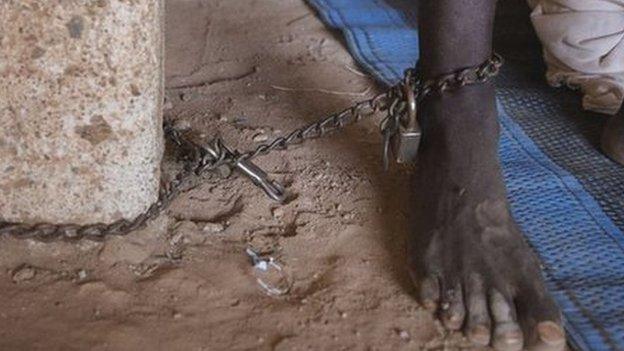Letter from Africa: The wheelchair gap
- Published
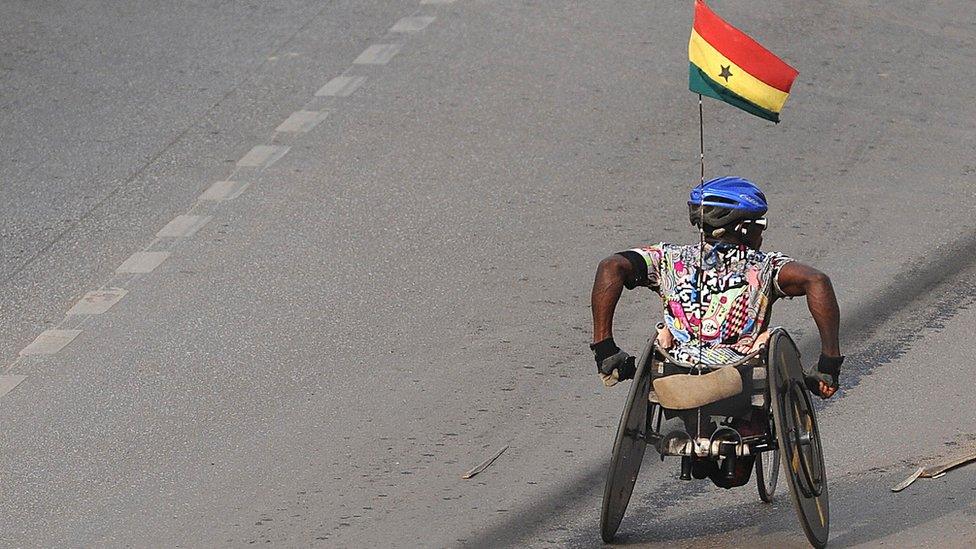
In our series of letters from African journalists, Ghanaian writer and former government minister Elizabeth Ohene considers the gap between Paralympic wonder and the reality for wheelchair users in Ghana.
I have both my legs and both arms and I think it takes me about a minute to run, or maybe I should say, to shuffle 100m. I have therefore been watching the Rio Paralympics and feeling thoroughly ashamed of myself.
You can watch Usain Bolt, David Rudisha or Allyson Felix on the track and admire them and probably look at yourself in disgust at your excess fat.
But you watch the Paralympians in the swimming pool and you watch someone with cerebral palsy run the 400m in under 55 seconds and your heart misses a beat.
It obviously takes superhuman effort way beyond anything I could dream of to be a Paralympian; but it also takes technology and scientific wizardry that is also way beyond anything that is part of our lives in my part of the world.
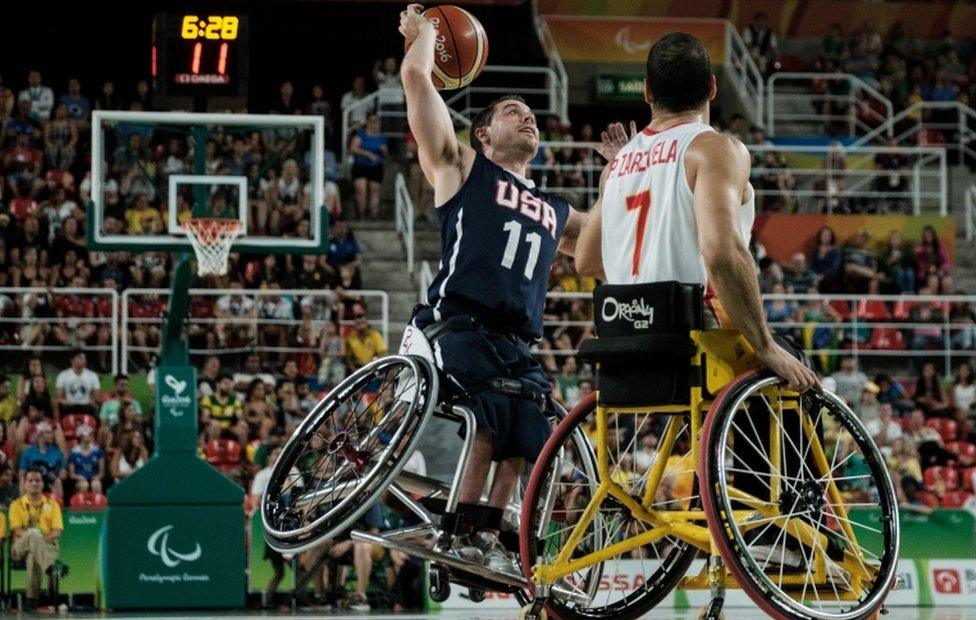
Many Paralympians have access to sophisticated apparatus
I have therefore come to the conclusion that we might all be on the same planet earth, but we are living in very different worlds.
I look at the wheelchair basketball matches and I gasp at the sophisticated machines. They do not look like those I know as wheelchairs.
Technology has transformed the whole concept of wheelchairs.
I think of the reality in Ghana, where if you are born with any disability that would require a wheelchair - the most basic wheelchair to make life a little easier for you - the chances are you are in for a long hard slog.
On the subject of disability, we have a long way to go.
'Tough mothers'
It starts from birth.
In our society, it is probably fair to say that any disabled child that survives through to adulthood has a tough and determined mother.

Elizabeth Ohene:

"We have not accepted the wheelchair as a necessary bit of equipment that helps those who cannot walk to move around. We seem to think it is a luxury"

That mother would have had to fight every inch of the way simply to have her child accepted as a member of the society.
And of course she would have to deal with being told daily that having a disabled child is the result of having committed some grievous sin.
That mother would not expect nor would she get any special favours from society or from government to help with her child's special needs.
If the child should go to school and stay in school, it would mean their mother has been in a right battle royal.
Let me go back to the wheelchair because in many ways it spells out graphically what it means to be disabled in these parts.
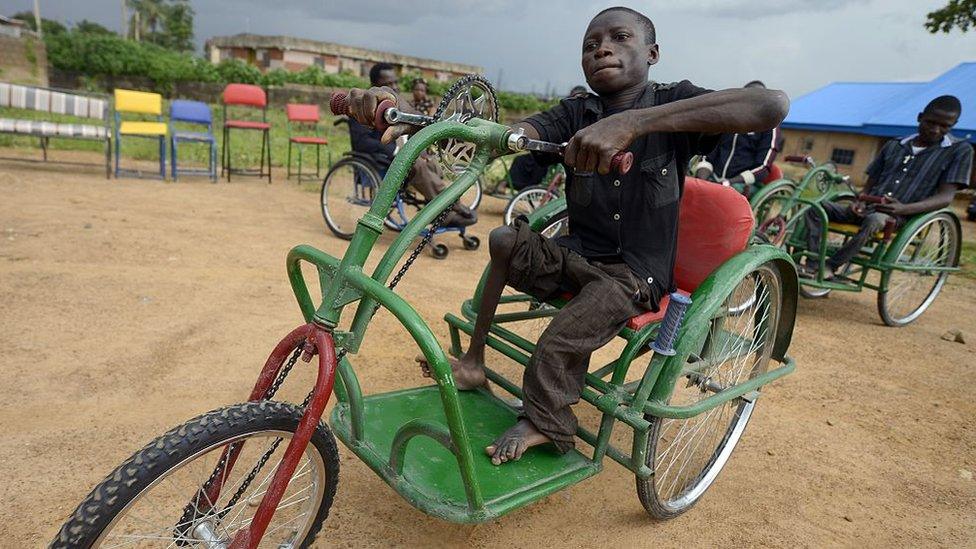
Wheelchairs are not readily available in West Africa
We have not accepted the wheelchair as a necessary bit of equipment that helps those who cannot walk to move around.
We seem to think it is a luxury - if you can drag yourself along on your buttocks or use a stick to move along, why get a wheelchair?
Wheelchairs are not your everyday equipment, they are not easily available and they are expensive.
And I am not talking about the fancy and sophisticated ones I have been watching on the screen at Rio.
No ramps or railings
When you do get a wheelchair in Ghana, you discover you cannot move around the streets of our towns because pavements are not available to pedestrians, never mind to wheelchair users.
There are some very high profile disability advocates who keep the subject in the headlines every once in a while, and we have been dragged into discarding many of our past attitudes and prejudices.

More on disability in Ghana:


Ten years ago, we did make a significant move when Ghana's parliament passed the Persons With Disability Act on 9 August 2006.
It had taken a long time in the drafting and the debate had been long and exhaustive.
Judging from where we were coming, this was quite a progressive act and it touched on all the necessary areas.
It gave a grace period of 10 years for all public buildings to be made disability friendly.
I am sure it is not a surprise to say that a decade on this has not happened; public buildings still do not have wheelchair entrances.
That will probably explain why I have not been dreaming of a Ghana wheelchair basketball team at the Paralympics in Tokyo in 2020.
I will settle for wheelchair entrances, ramps and railings in public buildings here in Ghana.
These days I have very modest aspirations.

More from Elizabeth Ohene:

- Published29 December 2015
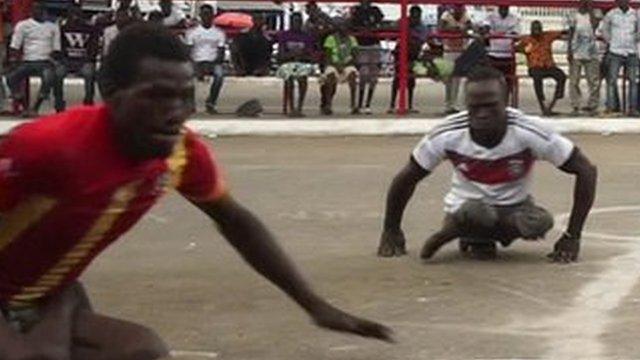
- Published28 July 2015
